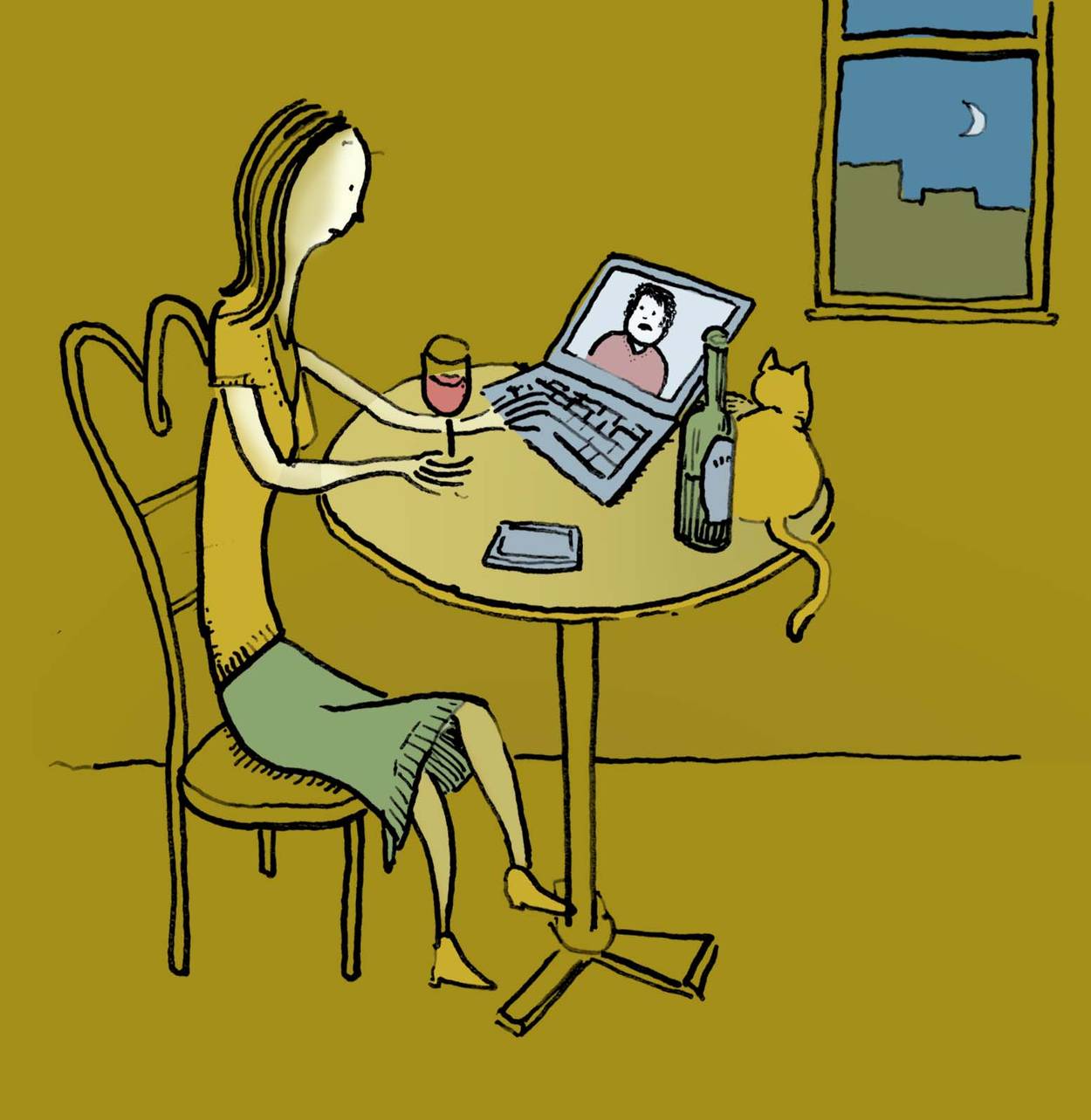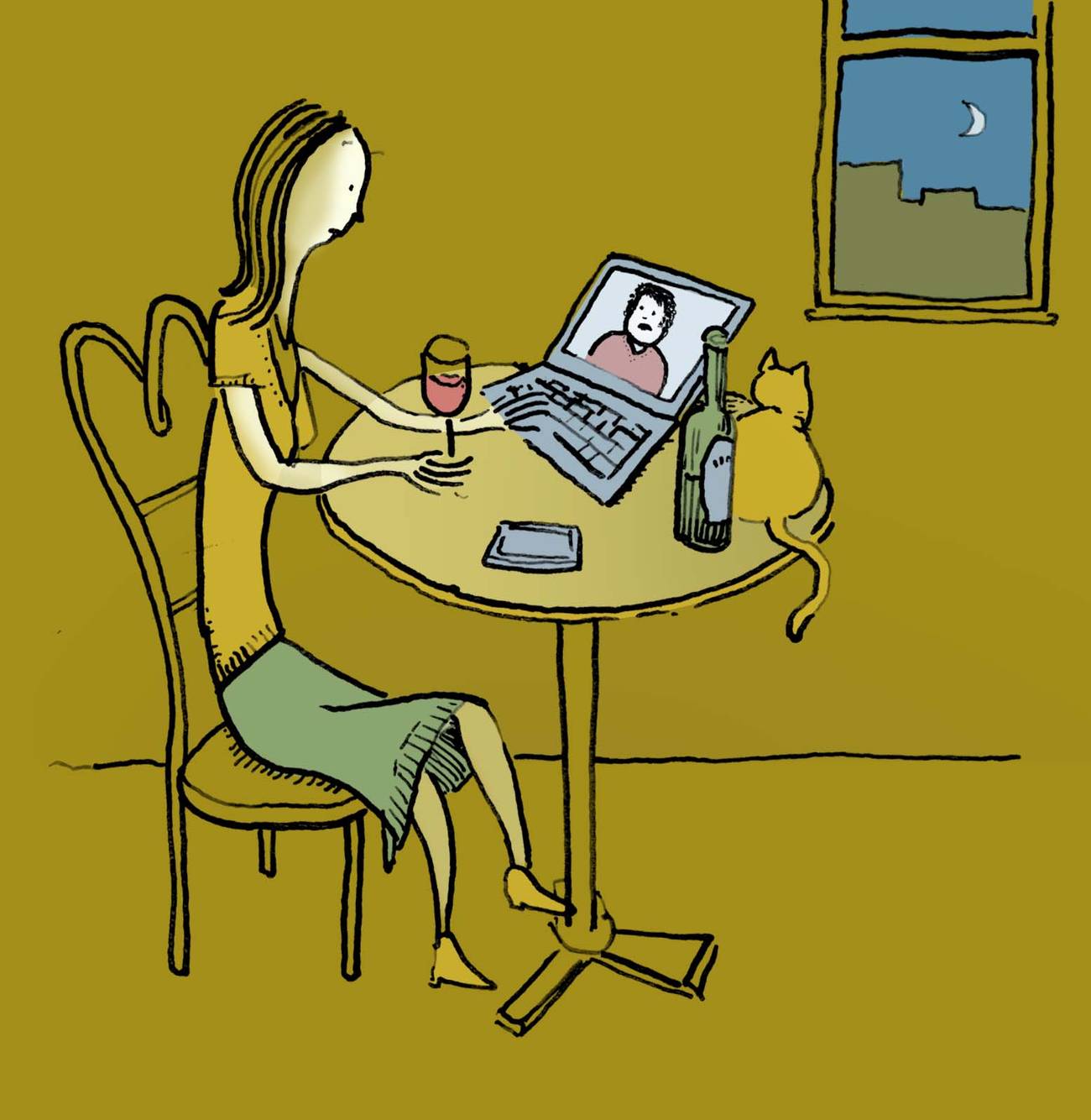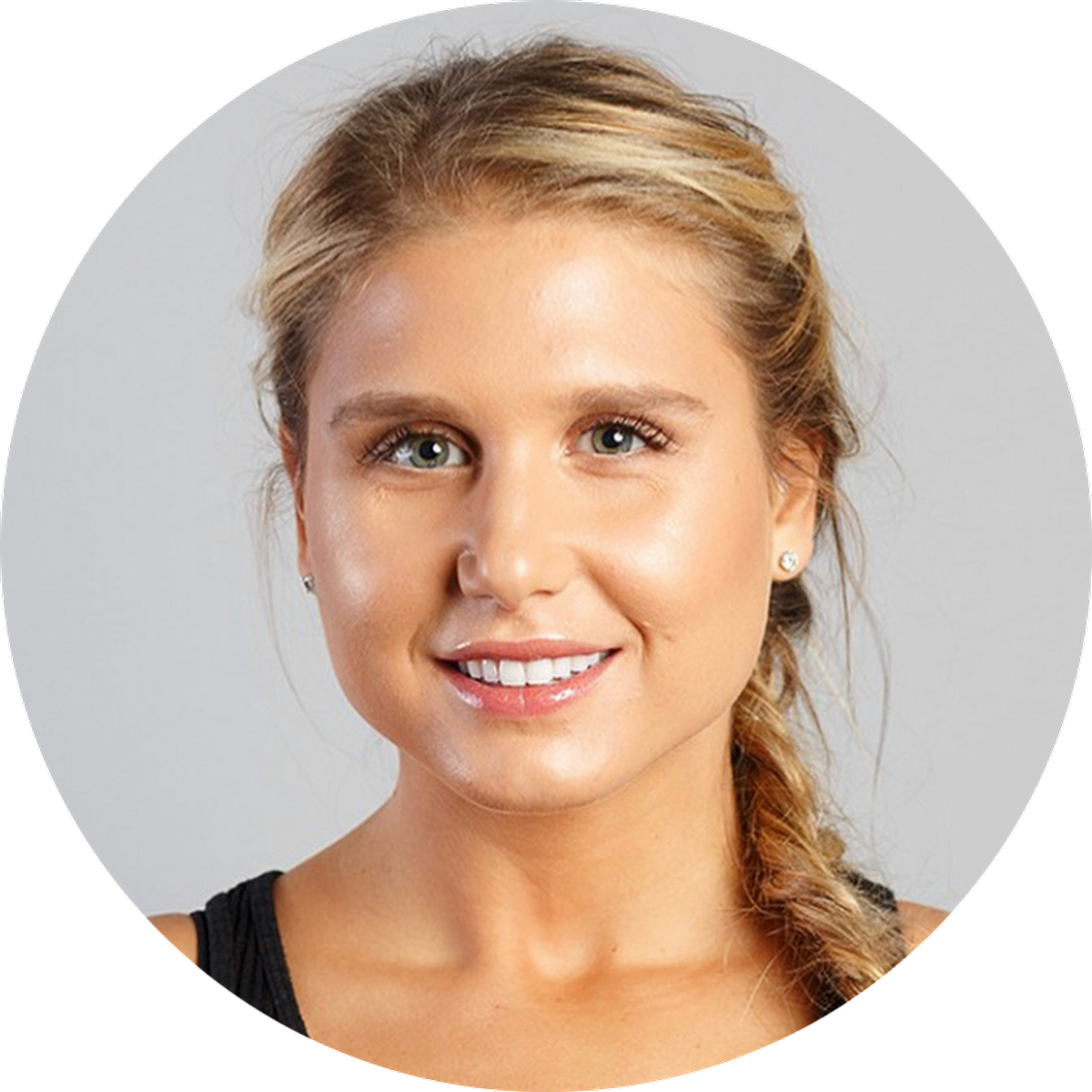How to Date in a Pandemic
An Instagram chat among friends turned into ‘Live With Lee,’ a hit show about relationships in the Sephardic community




The coronavirus made a celebrity out of Lee Zebede. At least as far as the tri-state area’s Sephardic community is concerned.
Before the pandemic, life in the community orbited around social events where people hugged and shook hands and kissed cheeks and arak was a perfectly good form of sanitizer. I can attest to seeing one thousand familiar faces crowd a wedding hall and knowing what 50% of them ate for breakfast and where the other half was planning their next vacation. And like any tightknit community, we talked: about who was dating, proposing, expecting, breaking up, starting a food business. So when the coronavirus swept New York, effectively locking everyone indoors, it left a vast communication hole in its place. In the absence of large gatherings, casual “bumps into so-and-so,” and robust family meals, many of us were left pining for the camaraderie and social connections that have fused us together for generations.
On the dating front, matchmakers scrambled to adapt their methods to quarantine life, but results were mixed. Zoom dates were “awkward” and the once reliable “How was your day,” now a conversation killer. But perhaps the technology wasn’t the problem. Dating within the community had become increasingly difficult even pre-pandemic. Older methods seemed out of touch with the current reality. Did anyone actually “meet” anymore? Setups were made based on relative age rather than compatibility. Women were too often phased out of the mainstream dating pool while men dipped their toes in and out only when they felt the heat at their backs. The social strata were fragmented. The power imbalance unequally favored one sex over the other. The music at parties was too loud to actually hold a conversation. A woman’s age was seen as a “caveat” rather than a sign of maturity. Toss contagion and isolation into the mix, and you were looking at a dating pool that barely grazed your ankles.
Zebede, who is 29—although she’s started shaving off a year in an effort to pretend 2020 never happened—had just wrapped up a Zoom date on April 13. She was airing her grievances to a couple of friends over text, when one of them suggested she take to Instagram. After some convincing, she eventually went “Live” with the expectation that just a handful of friends would be watching—and so she didn’t hold back. Why are men on these virtual speed dates so negative? Zebede mused. If you have 30 seconds to get to know someone, are you really going to use that time to detail how bored you are? She was funny, animated, and spoke to the pressures that many single people, especially in tight communities, feel. She watched the viewers creep up toward 100. She brought on a “guest” to discuss quarantine life. “You’re lucky you’re married,” Zebede bemoaned.
The following night, Zebede participated in another 90-second Zoom speed-dating session. Afterward, she went Live again. I have so much to say about this. This time, viewership crept past 100. The comment section was free-flowing, with many thanking her for addressing the nuances and taboos of dating. She woke up to 60 friend requests, still unsure about what was happening. By the third Live, it was clear that Zebede had tapped into something: 350 people tuned in. There was buzz. The communication lines that lay dormant for months began to flicker with life. The pulse of community life was returning, and every vein led to what became known as “Live With Lee.” People wanted to know when the next “show” would be.

Zebede began inviting single guys on to hear about their experiences in quarantine. She’d field messages from mothers and aunts asking her to set them up with daughters or nieces. By the fifth Live, over 1,000 people were watching. Factor in that many were quarantined with families, and that number has easily doubled, most likely tripled. One friend recounted how three generations of women crowded around a single phone, listening to Zebede interview eligible bachelors on dating etiquette. Questions veered from “What’s your favorite cereal?” to “How aggressive should a girl be in pursuing a guy she’s interested in?”
Zebede had effectively performed a COVID pivot. Amid all the uncertainty and loss of normalcy, she forged a new path for herself, in the basement of her parents’ New Jersey home.
The key to her show’s success is Zebede herself. Stir up Andy Cohen, Oprah, Patti Stanger, and Casamigos Blanco in a tall, chilled glass, and you’ve got the charming and feisty personality behind “Live With Lee.”
In the weeks since Zebede’s shows took off, she’s gained a new semblance of celebrity influence in the small New Jersey town where we are both quarantined. “I have new cousins now,” she said with a laugh. People have come out of the woodwork and back into her life. Mixologists send DIY cocktail kits to her home. She’s been the recipient of gourmet salads, ice cream, dehydrated Brussels sprouts and sweatshirts with her Insta logo emblazoned on the front. She unboxes free shit on her Instagram, and it doesn’t immediately make me want to punch my screen. On trips to Ouri, the bastion of organic food and produce in our community, she gets asked for her autograph. “I’m like, what?” she said with disbelief. “Let me have your autograph! My penmanship’s shit.” And it goes without saying, she wouldn’t be a true celebrity without some haters scrutinizing her every move.
Zebede’s popularity seems to signify something much greater than an isolated case of one woman stumbling into influencer-dom. This pandemic has turned celebrity culture as we know it on its head. Stripped of their red carpets and elevated platforms, celebrities seem to be undergoing an existential crisis. Too many gaffes have been made in a desperate plea to remain relevant. See: Gal Gadot’s misguided “Imagine” video, Ellen’s tone-deaf remarks, anything Madonna. If the virus has laid anything bare, it’s this: Celebrities need us more than we need them. A-listers and influencers want to feel seen, but we want to see normal people. Missing friendships, relationships, and gossip, we’re combatting a thirst for knowledge of the people we once felt we knew. Within a community, there are few bonds stronger than the social currents that hold us together. Our knowledge of each other’s lives often borders on voyeuristic, but it is also the very thing that helps us feel safe and understood. Zebede has managed to take this hankering for information online. Most importantly, she’s started a conversation among our generation around the shifts in love and dating.
“Live With Lee” typically runs around an hour and a half. At its peak, Zebede was putting on two or three shows a week. Anybody was free to watch. Lee is a Pilates instructor, and many of her clients (outside of the community) are fans of the show. She usually begins with a goblet-sized drink in her hand. She welcomes the audience as they stream in, surveying the crowd like a seasoned performer. She might talk for a few moments before introducing her first guest. Fans have grown fond of Zebede’s backgrounds, a rotating slew of printed sarongs hung on the wall behind her. She’ll field some questions coming from the comment section, careful to never reveal who her guests are that evening. Zebede made the decision early on to dedicate each show toward a chosen charity. All proceeds raised during and after the “Live” are Venmoed to a designated account and dispersed accordingly. After “pinning” the account to the comment section, Zebede begins. On more than a few shows, she played defense against a prank caller determined to mess with her phone and concurrently, the show. As with anything popular, the show has been privy to copycats, but Zebede shrugs them off with a swift Next. There’s little time for negativity when there are 1,000 women waiting in the wings, eager to hear a guy’s most desirable quality.
A lot of married people watch Zebede’s shows. I am one of them. “I don’t know what it is,” Zebede said about her show’s rising popularity. But I’ll venture to guess: Where we once spied out of street-facing windows, now we look to our devices to see how other people are living. This desire to peel back the screen on others’ lives transcends age and demographics. It’s why my college-age sister, myself, and my grandmother are equally enthralled by people we know musing about whether it’s too aggro to kiss a girl on a first date. My sister hears this and thinks: What are my options? I think: What’s changed? And my grandmother: That boy’s cute, but who’s his mother? The appeal to single people, according to Zebede, is obvious: “Quarantine woke everyone up. It’s like, if you’re into someone, pursue it. You snooze, you lose.”
I asked Zebede if she’s interested in any of the guys she’s had on the show. “There are some ‘Lives’ where, I watch them back and I’m like, ‘if that was a first date, I’d come home thinking he’s the one.’” Is Zebede actually flirting when it seems like she’s flirting? A resounding yes. Although it’s still hard to carry over that confidence offscreen, she admits. While she’s broken boundaries online, they’re harder to cross in real life. She is cognizant of that, and so in mid-May, she announced that she’d be hosting a Syrian Bachelor reality series running on Zoom. An experiment more akin to Netflix’s Love Is Blind, seven female contestants’ faces would be blurred out on screen while Zebede asked them questions. The bachelor would then eliminate a contestant each round based on her answers. All proceeds from the event would go to Hatzolah Jersey Shore. The winning couple would have their first date paid for at New York City’s kosher steakhouse Prime Cut, when it reopens. Makeup and hair stylists offered free or discounted wedding day services, should the couple make it to the altar. One local business sponsored two 14-karat wedding bands.
On the evening of May 23, a Zoom code was posted on Zebede’s Instagram. Within 30 seconds, the “room” was full and capped out at 1,000 viewers. Zebede was fielding calls and messages left and right. “If you’re quarantined with people, please share a screen,” she urged. By the end of the evening, one woman had been crowned winner and Zebede had raised $24,000 for Hatzolah. Over the course of all her “Lives,” Zebede estimates to have raised around $76,000 for various charities, including ones that cater to brides in need and funding fertility treatments. Her positive reach goes beyond donations. Our community has been hit hard by the virus, and her shows are a welcome respite from the onslaught of bad news.
“I think for anyone over 25, this summer might be the best one yet,” Zebede told me, predicting smaller gatherings, more intimate conversations, and fewer distractions. She herself, is an example of what can happen when you actually start paying attention to people you might’ve previously written off. “Nobody knew this was my personality,” she said with a laugh. I pointed out that she’s an SLT Pilates instructor. I’ve taken those classes. It takes a special type of person to talk for 50 minutes straight while your clients foam at the mouth in plank position and bungee-kick you in the jaw. Zebede is a natural host, a born entertainer. I imagine she’d be a great quarantine buddy.
And as of this moment, she is still single.
Esther Levy Chehebar is a Brooklyn-based writer. She is currently at work on a novel loosely inspired by her Syrian Jewish upbringing.